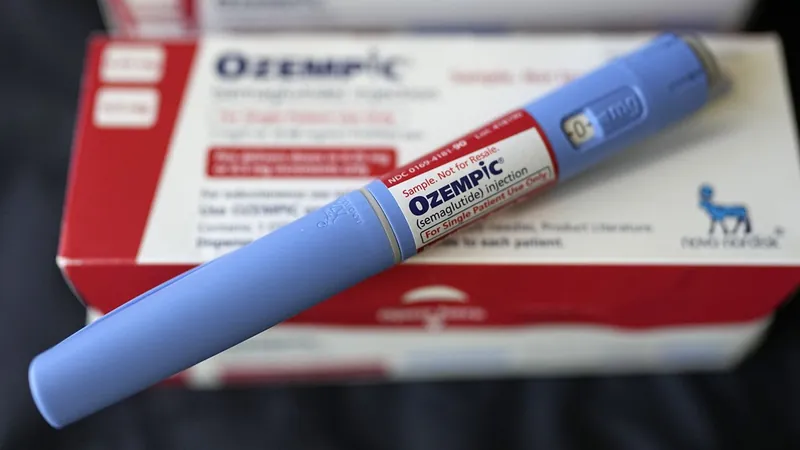
How Changes in Sexual Behavior Helped Curb the Mpox Outbreak: What You Need to Know!
2024-09-25
A recent study published in *The Lancet Infectious Diseases* has revealed that modifications in sexual behavior and natural immunity post-infection were key factors contributing to the decline of the mpox outbreak from 2022 to 2023, particularly among men who have sex with men (MSM) in Europe and the United States.
The findings stemmed from a comprehensive cross-sectional online survey conducted between May 19 and May 31, 2023, across 23 countries in Europe and the Americas. This survey was primarily promoted through four dating apps frequented by affected communities, leading to an impressive sample size of 16,875 participants.
Profile of Participants
The overwhelming majority of respondents were men (95.3%), with a significant portion identifying as gay (80.4%) or bisexual (16.5%). Vaccination played a role in this demographic, with 4,987 participants (29.6%) receiving at least one dose of the Jynneos vaccine, while 3,502 (20.8%) reported being fully vaccinated with two doses. Alarmingly, about 6.4% of those surveyed stated they had contracted mpox during the outbreak.
Shift in Sexual Practices
A notable statistic emerging from the survey revealed that 50.9% of respondents changed their sexual behavior during the outbreak, with 35.5% admitting to maintaining these changes as of May 2023. Key modifications included a drastic reduction in the number of sexual partners (93.2%), avoidance of group sex (88.4%), and steering clear of venues where sexual encounters are more likely (84.6%).
Interestingly, participants who were vaccinated were less inclined to report changes in their sexual behavior, as were those who had previously contracted the virus. The adaptation in behavior was particularly pronounced in North and Latin American countries, in contrast to a more subdued response in Western Europe.
What This Means for Future Outbreaks
The study's authors argued that the sharp decline in mpox transmission rates in late 2022 could largely be attributed to these behavioral adaptations along with naturally acquired immunity, particularly given the stark vaccine inequity observed across different regions.
However, experts have cautioned that these findings may not translate into our current situation. According to commentary from Dutch health specialists, the ongoing clade 1b outbreak, particularly in Africa, presents a different scenario. They highlighted that children under 15 now account for 66% of cases and a staggering 82% of mpox-related deaths in the Democratic Republic of Congo, positioning this demographic as the most vulnerable rather than MSM.
Urgent Need for a Multifaceted Approach
The disparities between the current outbreak and the 2022-2023 situation stress the importance of mpox vaccination. Experts insist that tackling the mpox crisis necessitates an all-encompassing approach that ensures equitable vaccine distribution, enhances surveillance and diagnostic efforts, and significantly boosts investment in research to better understand the dynamics of the virus.
The urgency of addressing these challenges cannot be overstated, as we learn from past outbreaks and aim to safeguard the most vulnerable populations today.

 Brasil (PT)
Brasil (PT)
 Canada (EN)
Canada (EN)
 Chile (ES)
Chile (ES)
 España (ES)
España (ES)
 France (FR)
France (FR)
 Hong Kong (EN)
Hong Kong (EN)
 Italia (IT)
Italia (IT)
 日本 (JA)
日本 (JA)
 Magyarország (HU)
Magyarország (HU)
 Norge (NO)
Norge (NO)
 Polska (PL)
Polska (PL)
 Schweiz (DE)
Schweiz (DE)
 Singapore (EN)
Singapore (EN)
 Sverige (SV)
Sverige (SV)
 Suomi (FI)
Suomi (FI)
 Türkiye (TR)
Türkiye (TR)